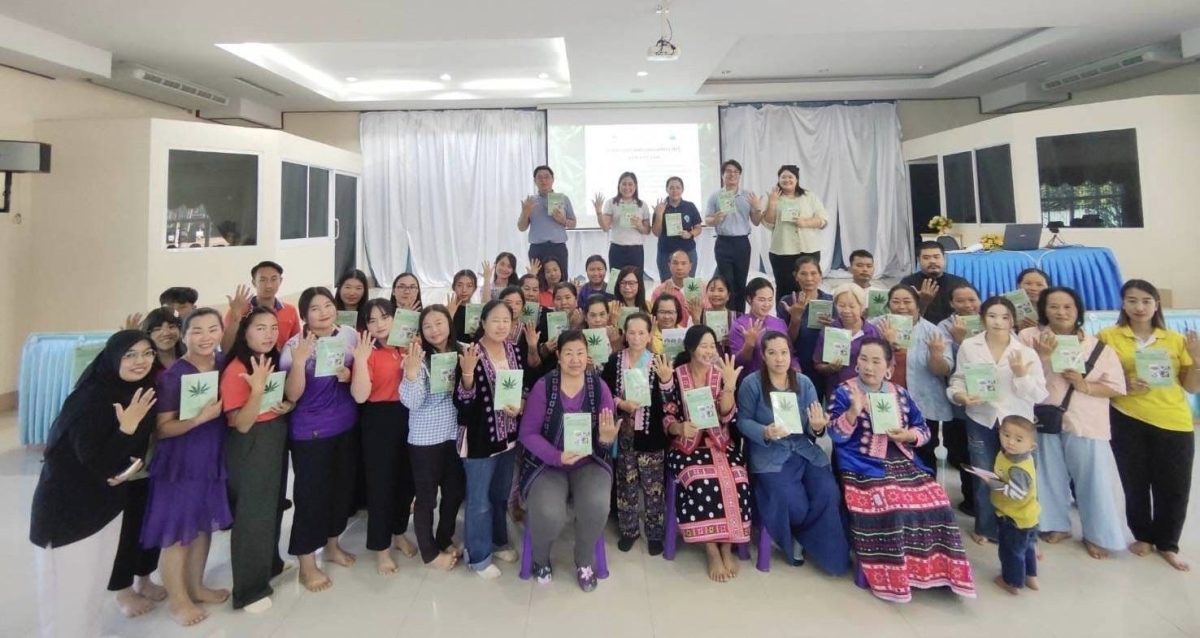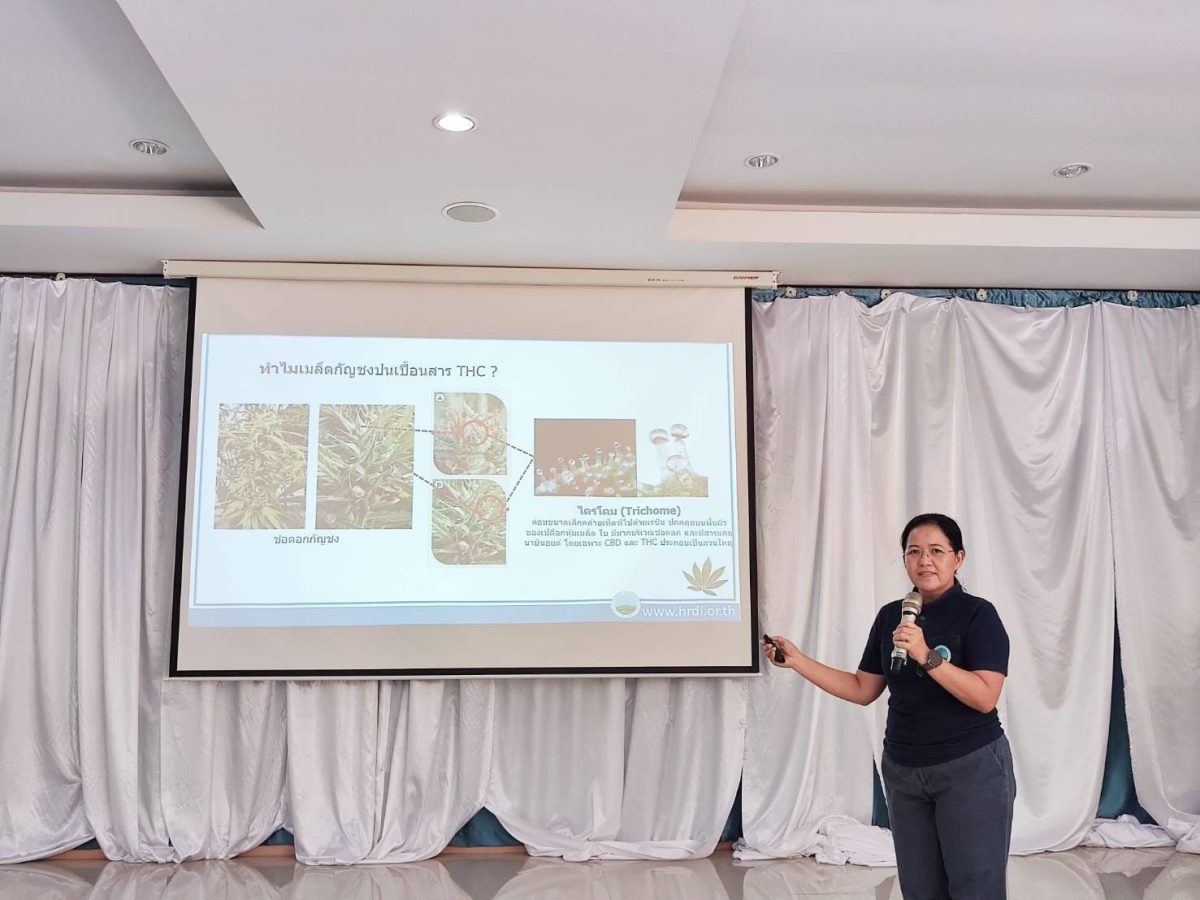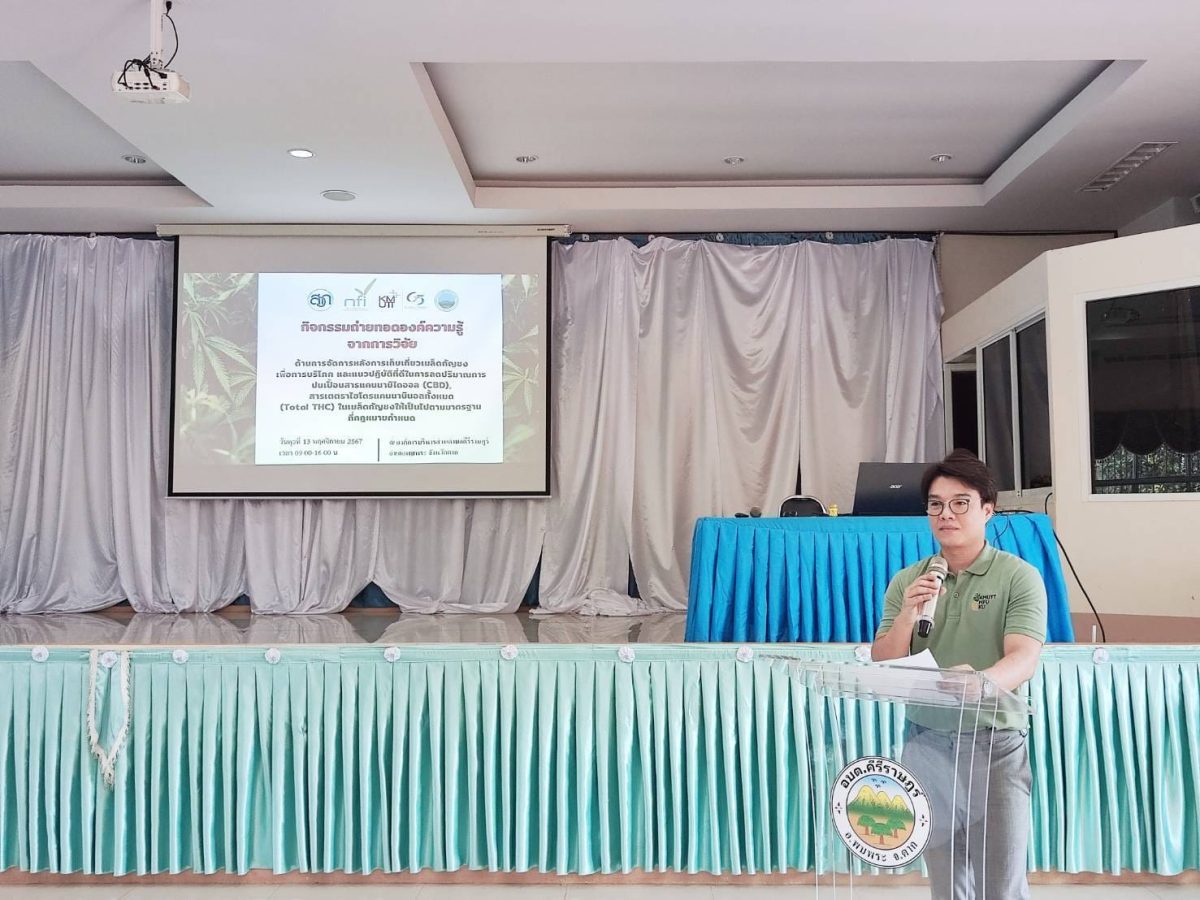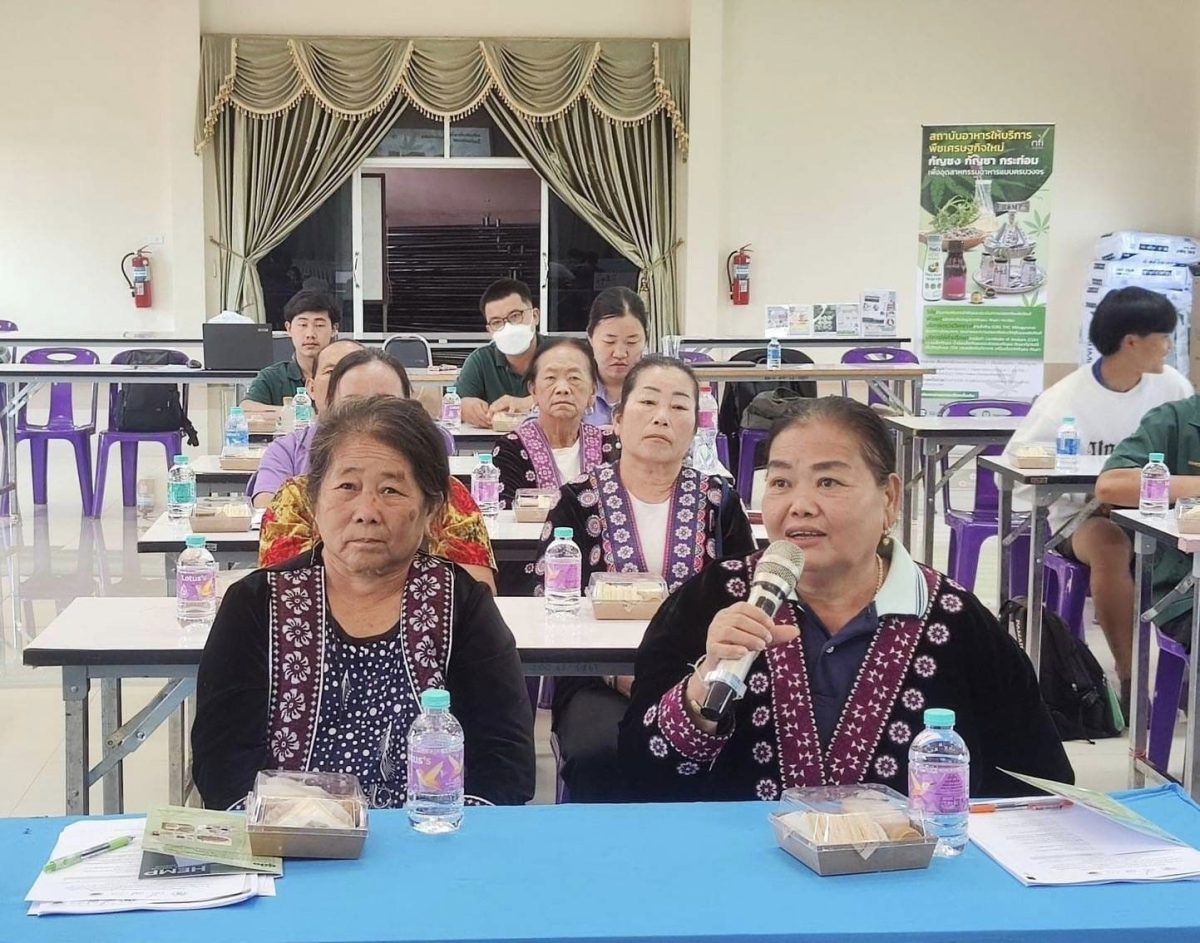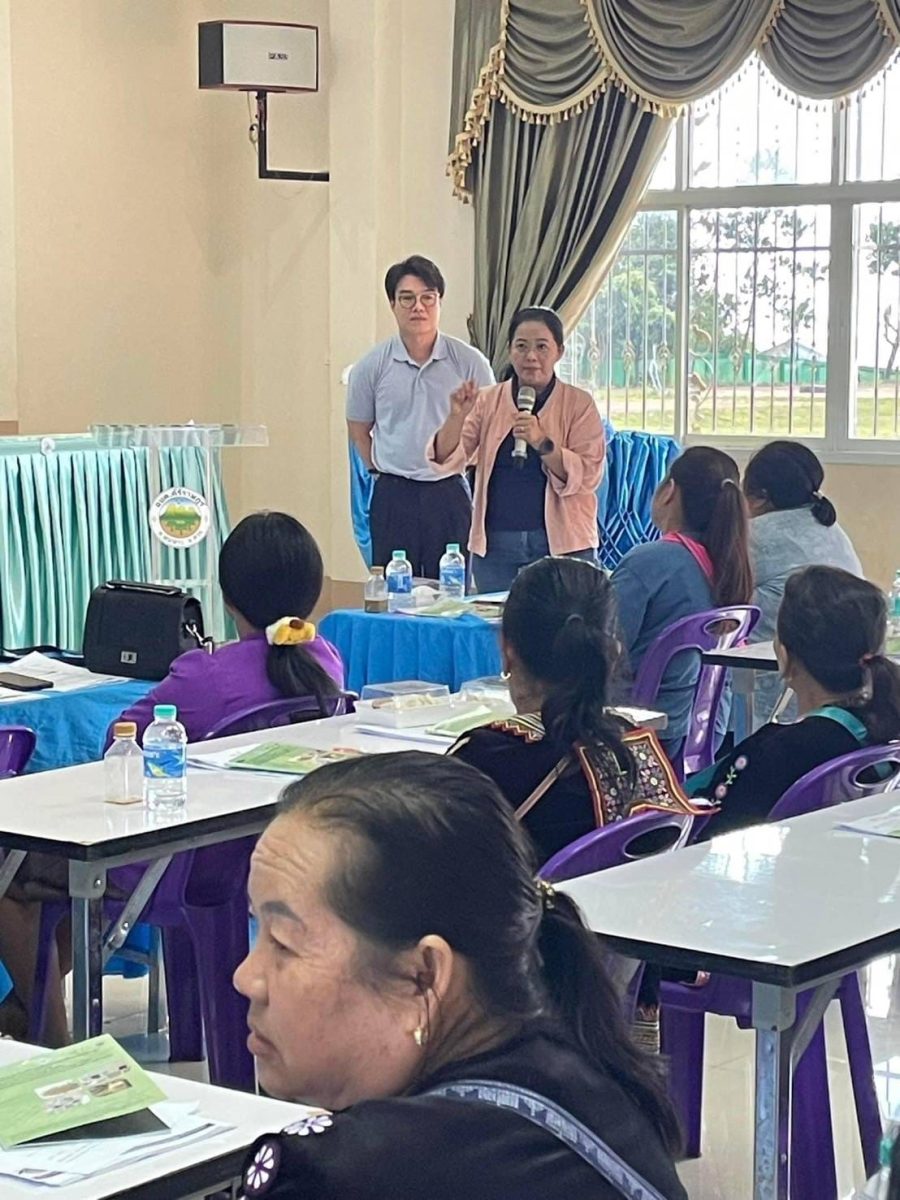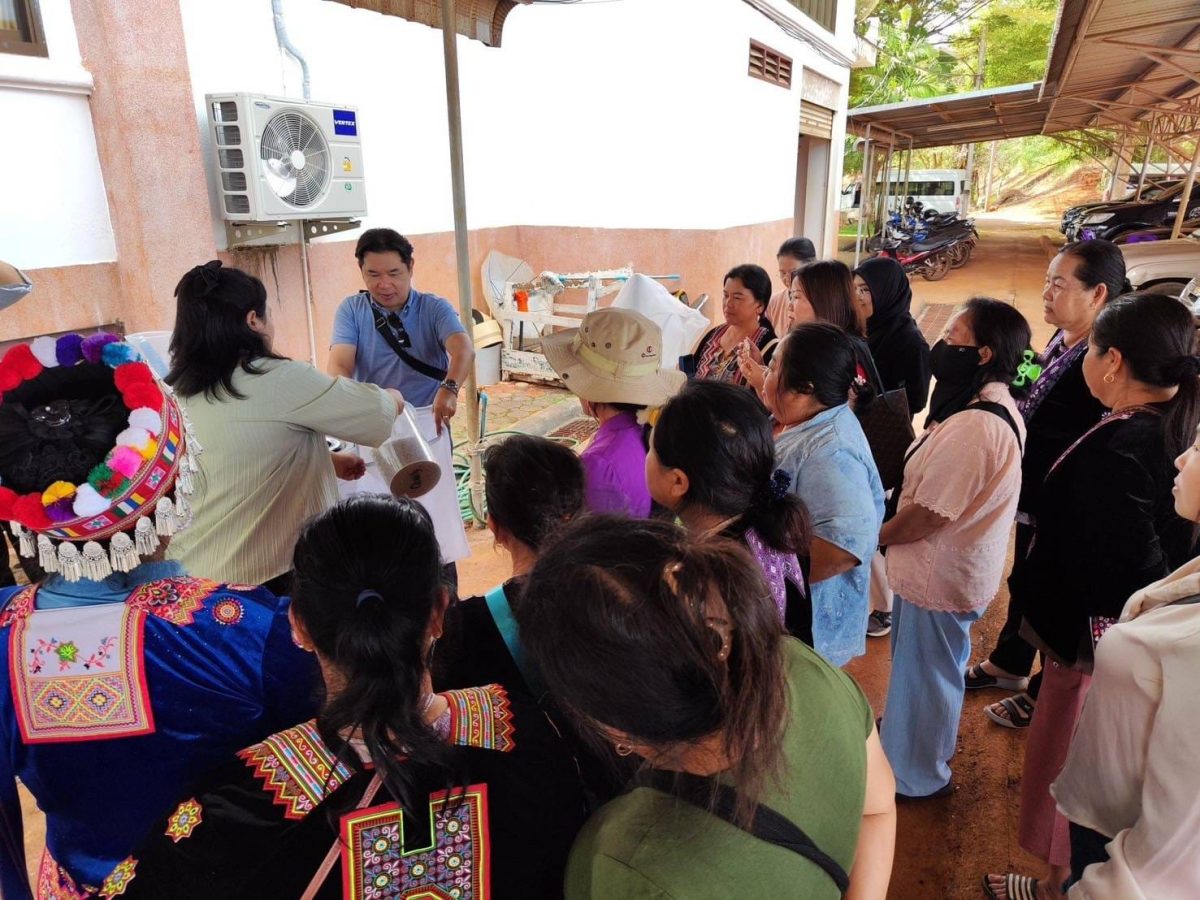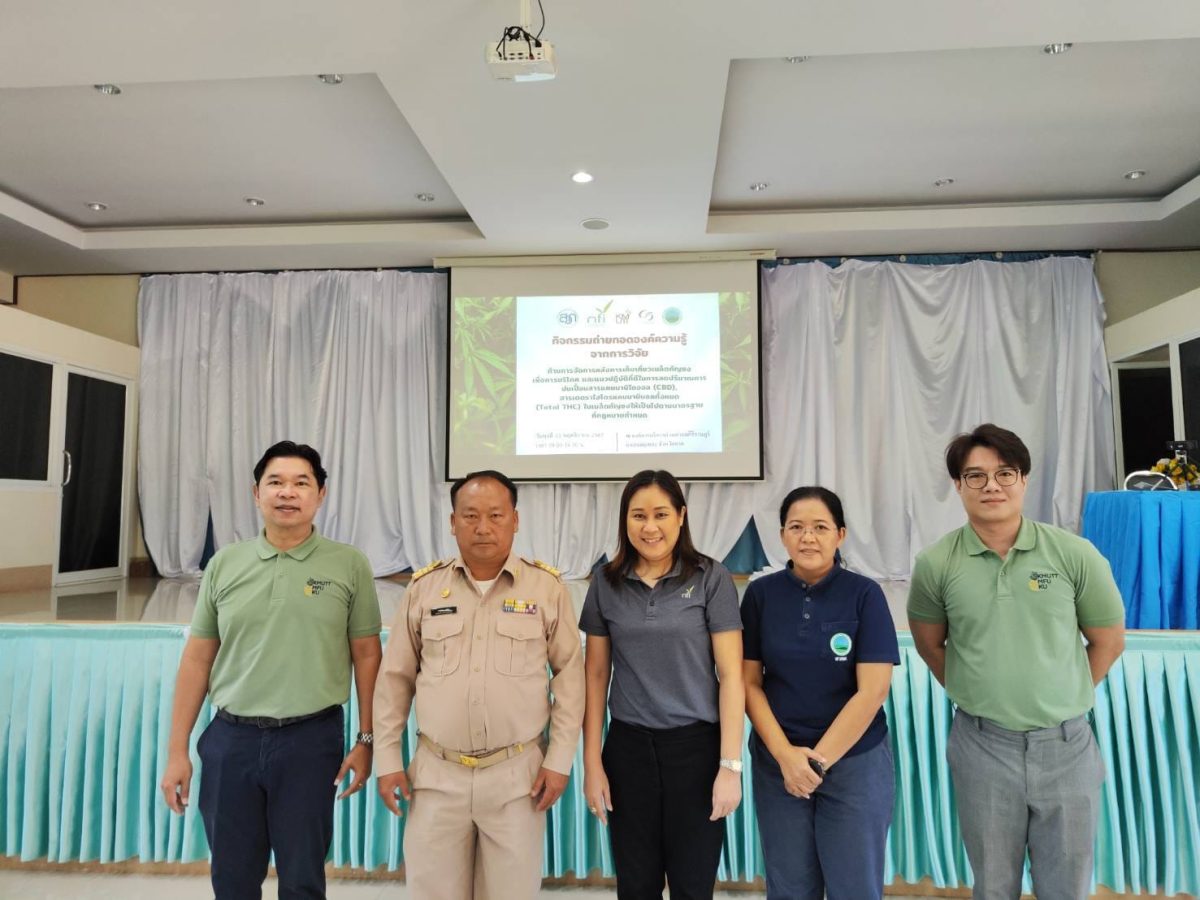
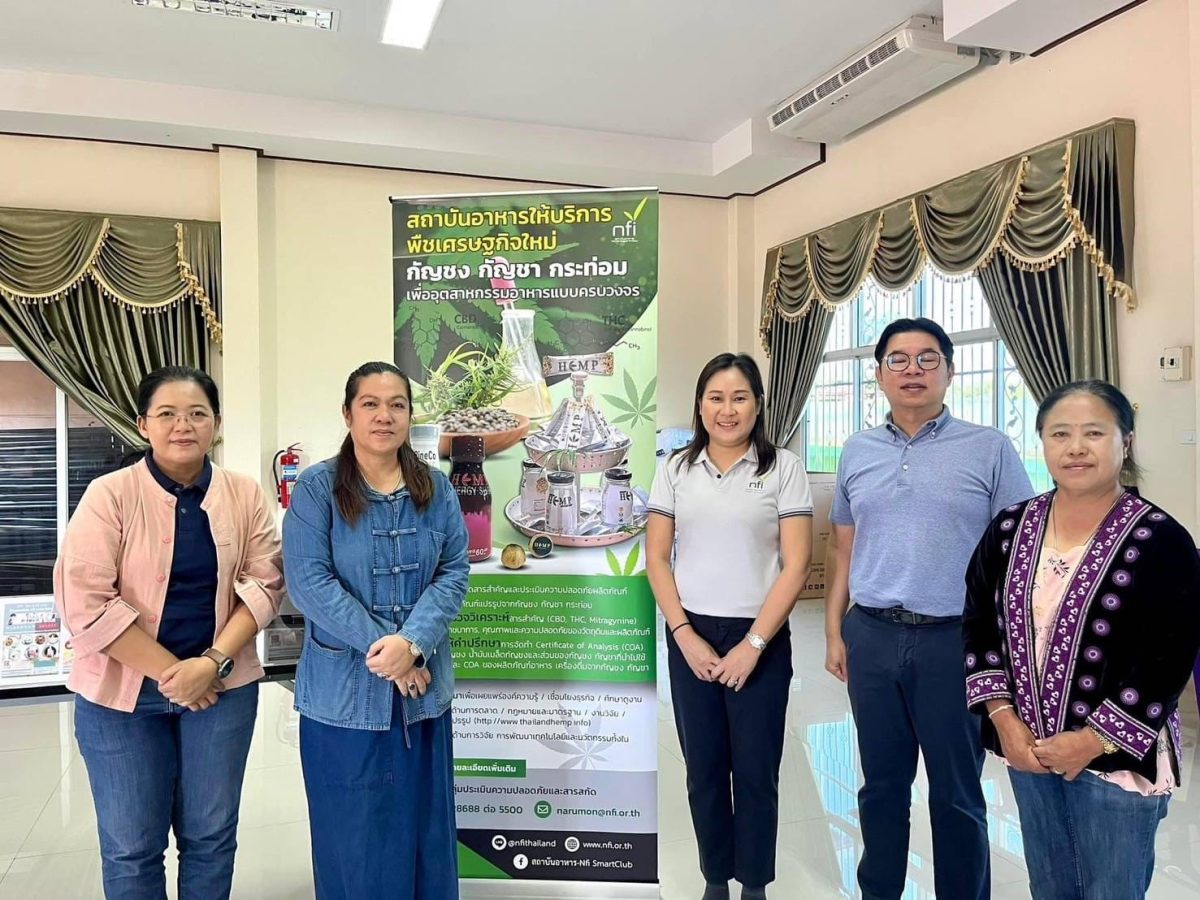
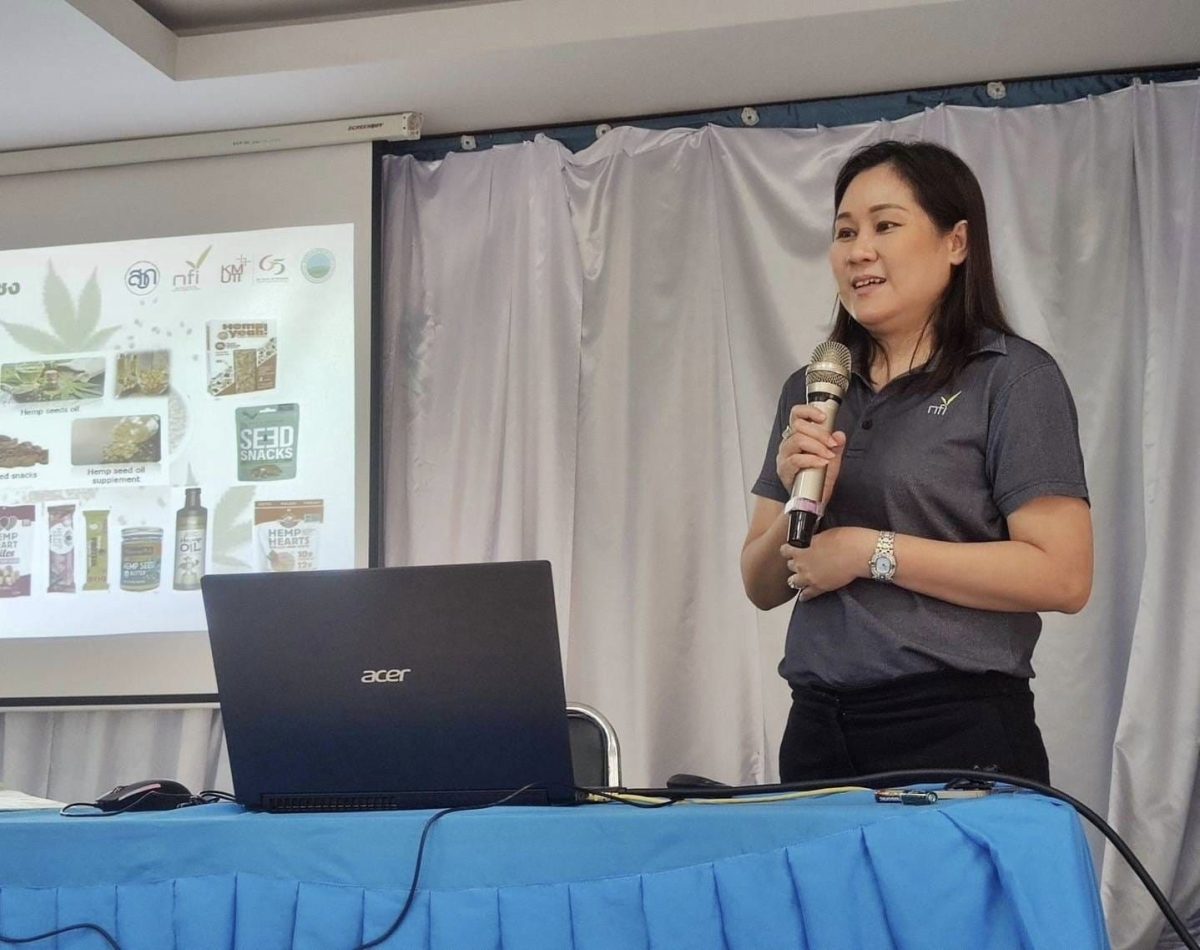
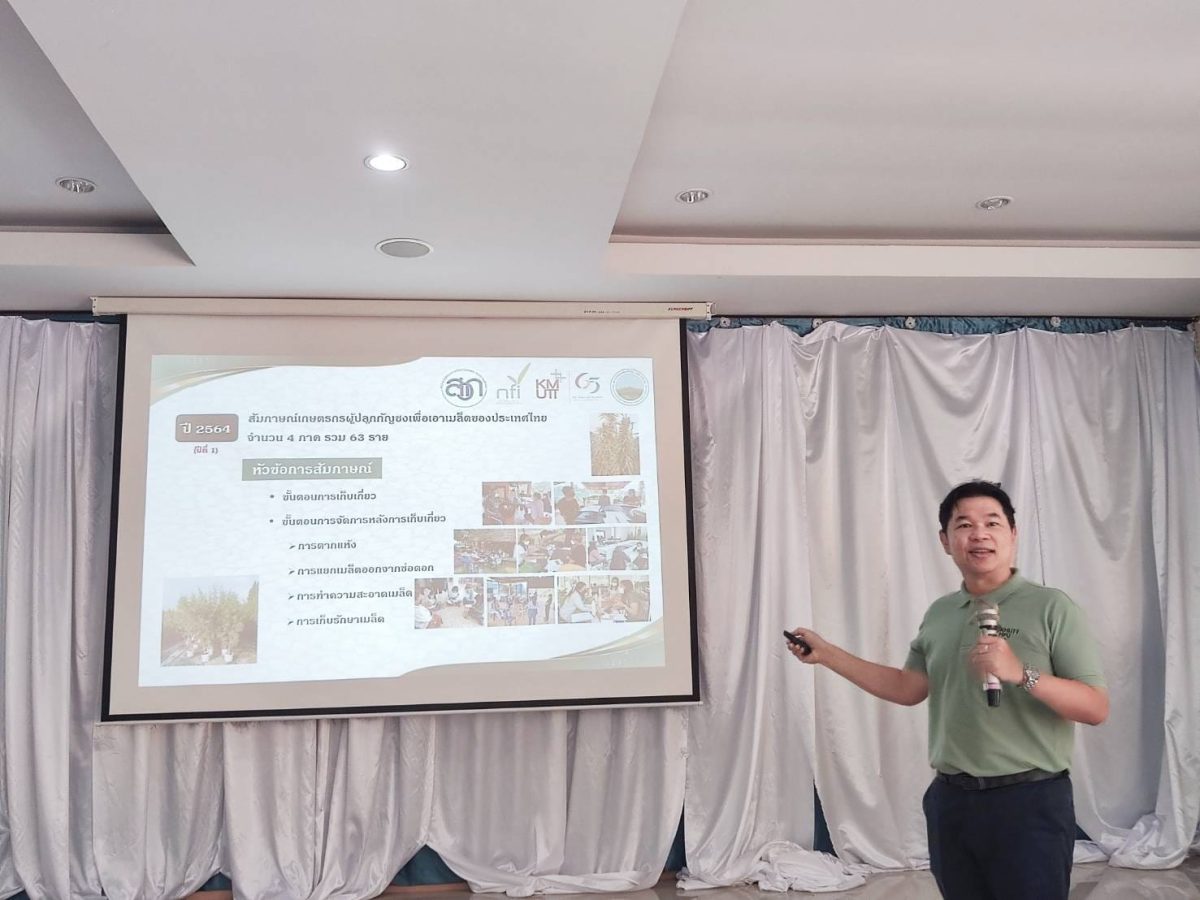
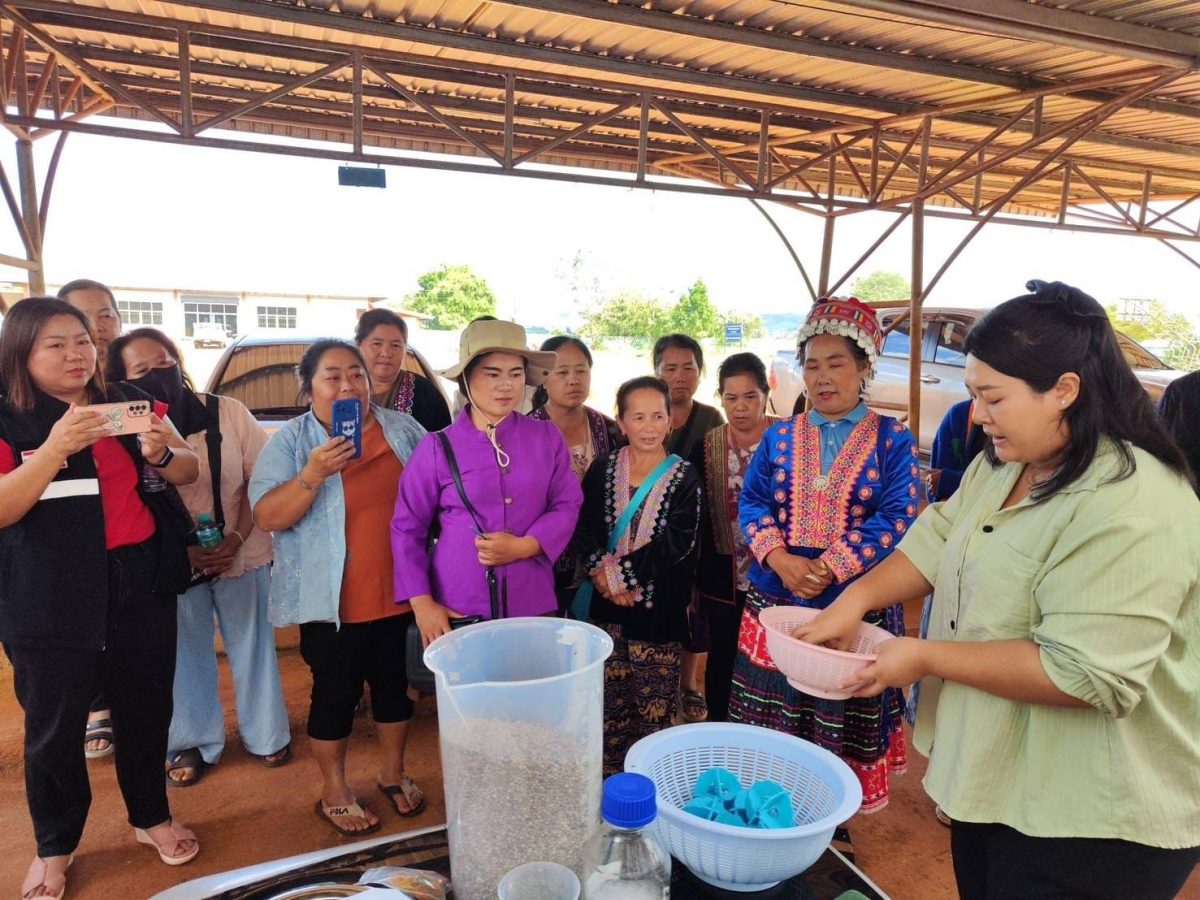
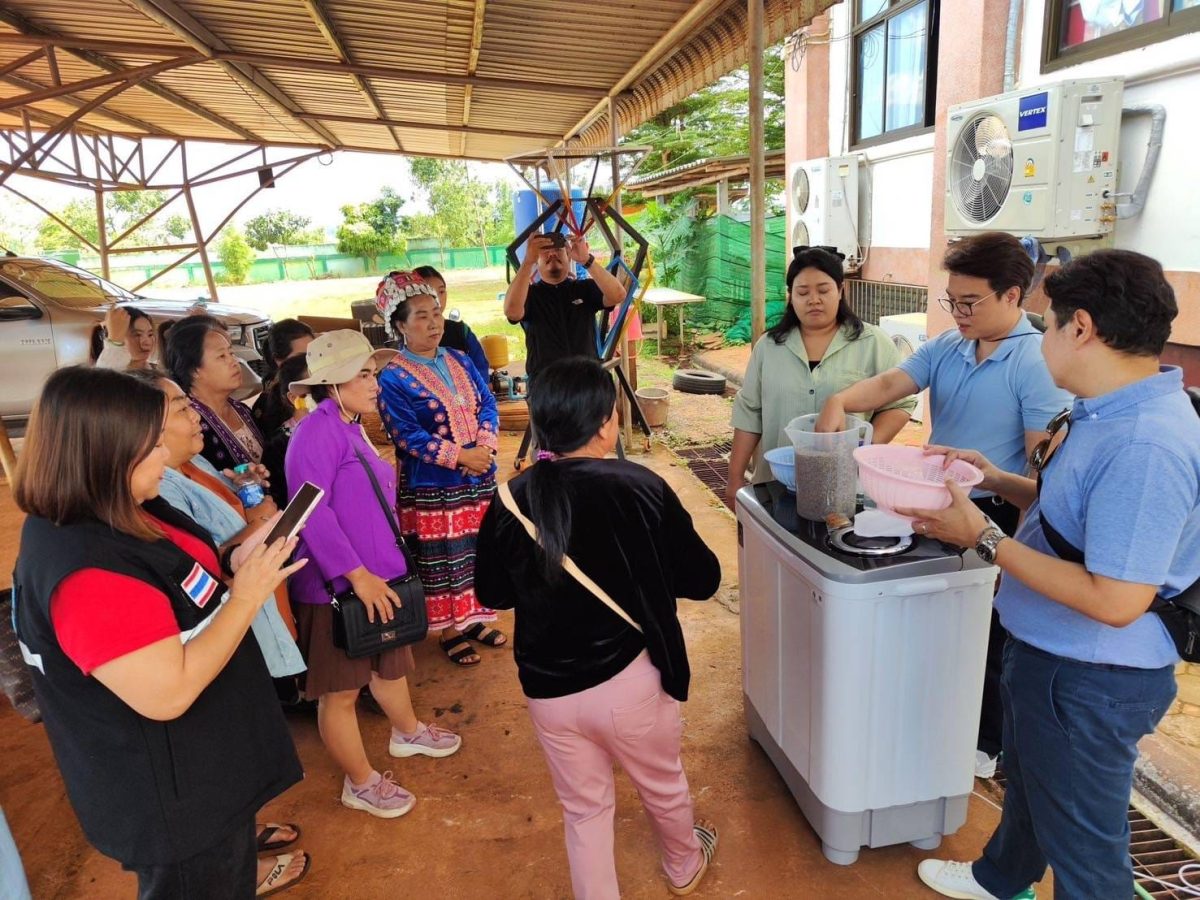
On Wednesday, November 13, 2024, Deputy Director of Entrepreneurship Development, National Food Institute, Head of the Research Project, led a research team from King Mongkut’s University of Technology Thonburi (KMUTT) and the Highland Research and Development Institute (Public Organization) (HRDI) to organize a knowledge transfer activity on “Post-harvest management of hemp seeds and good practices in reducing the amount of CBD and Total THC contamination in hemp seeds” at the Khirirat Subdistrict Administrative Organization, Phop Phra District, Tak Province, with more than 80 participants in the Onsite and ZOOM Meeting activities.
The objective is to transfer knowledge from research on post-harvest management of hemp seeds suitable for use as raw materials in food production, good practices in reducing CBD contamination, Total THC in hemp seeds, and processing hemp seeds into food products, along with demonstrating the methods to farmer groups, hemp planting and processing community enterprises, as well as extension officers of the Highland Research and Development Institute (Public Organization) and the Khirirat Subdistrict Administrative Organization, so that the knowledge can be disseminated and put into practice, so that hemp seeds with quality standards as required by law can be produced, which is part of the project “Research to Improve Standards and Reduce Cannabidiol (CBD) Contamination, Total Tetrahydrocannabinol (Total THC) in Hemp Seeds, Hemp Seed Oil, and Hemp Seed Food Products in Thailand (Year 2)”, which the Food Institute has received funding from the Agricultural Research Development Agency (Public Organization).
This knowledge transfer is an important step in developing post-harvest management standards for hemp seeds to reduce Total THC contamination that affects consumer health and promotes quality and safe hemp seed food products, which will benefit farmers, entrepreneurs and consumers.
IPucture/News: NFI Connext
